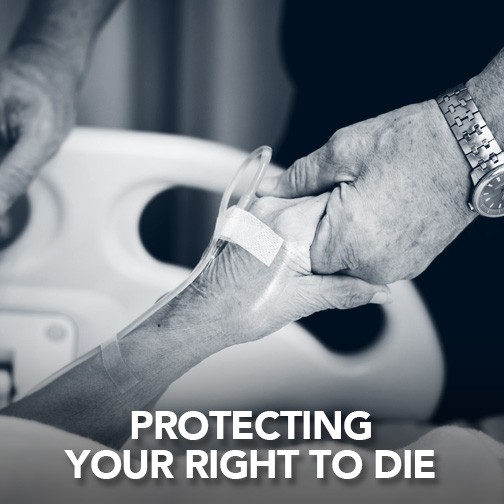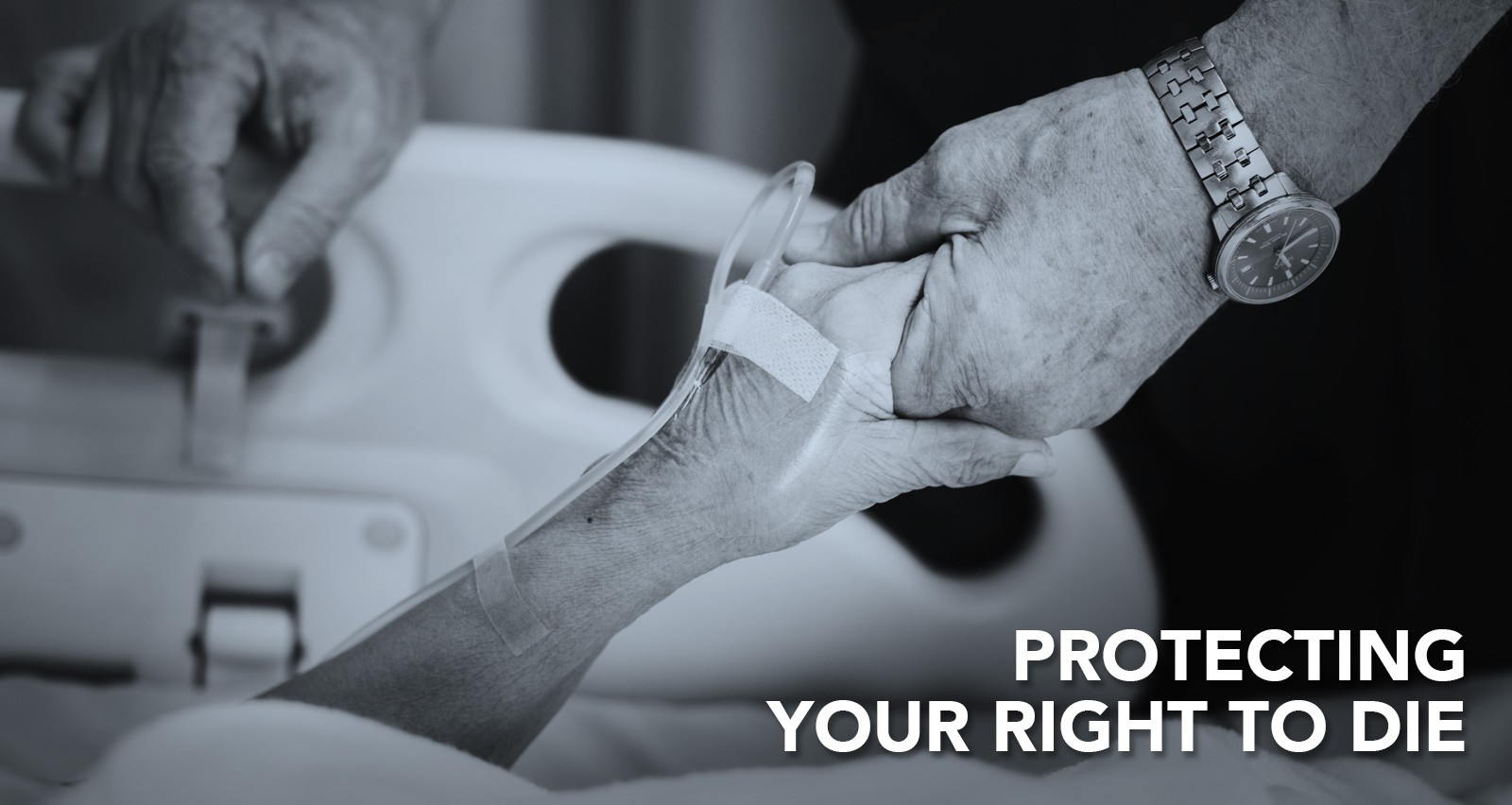
Victoria’s New Dying Legislation and What it Means
As some of you may know, euthanasia was legalised in Melbourne a few weeks ago. For those of you who don’t know, “euthanasia” is defined as the act of killing or permitting the death of the hopelessly sick or injured (such as persons or domestic animals) in a relatively painless way, usually for reasons of mercy.
To many, this comes as good news, after all, is it not a person’s right to decide how they die? But then again, there are almost as many others who feel that euthanasia is simply a form of suicide, murder or an odd combination of the two – it should be noted that another term to describe euthanasia, is “medically assisted suicide.”
Naturally, there are strong opinions on both sides of the fence and, while we’d love to debate the pros and cons, let’s focus instead on what legalising euthanasia ultimately means to Australia and its citizens.
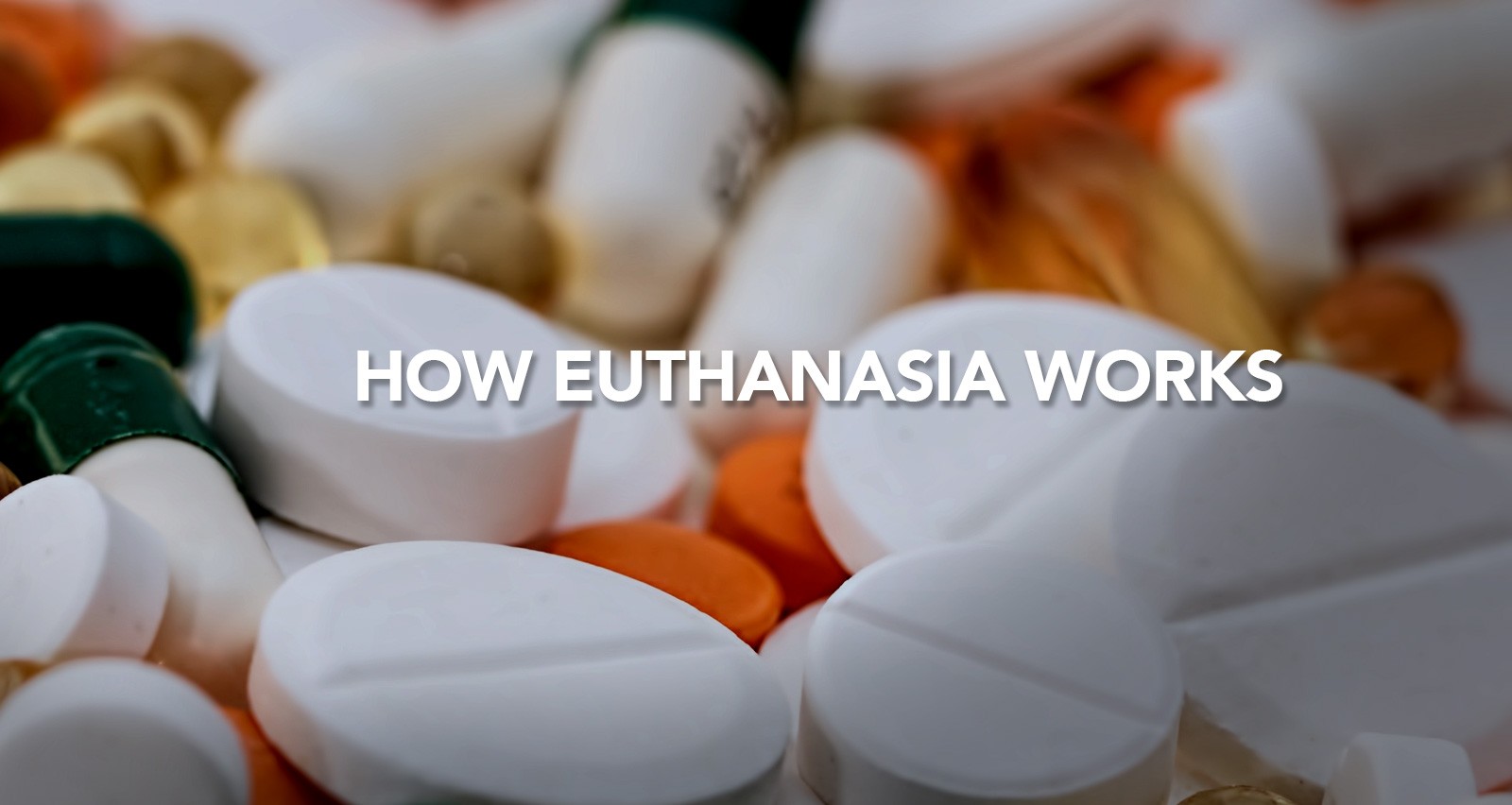
How Euthanasia Works
Broadly speaking, there are Euthanasia is divided into four categories;
1)Active and Passive Euthanasia
In “active” euthanasia, a person directly causes the patient’s death whereas with “passive” euthanasia, the patient is simply allowed to die from natural causes (i.e. withholding treatment).
2) Voluntary, Non-voluntary and Involuntary Euthanasia
“Voluntary” euthanasia involves the patient outwardly requesting that he or she be euthanized. “Non-voluntary” euthanasia usually occurs when the patient is incapable of making a meaningful decision between living and dying and an appropriate person makes the decision on their behalf. “Involuntary” euthanasia occurs when the patient chooses to live but is killed anyway – most people just call this “murder” and and it’s almost certain that any legal proceedings will see the person responsible put away for a very long time. There are moral debates surrounding this, but it’s very difficult to defend from any standpoint, especially if the patient in question is capable of making informed decisions.
3)Indirect Euthanasia
Indirect euthanasia refers to situations where a patient is provided treatment, usually to reduce pain, that results in speeding up the patient’s death as a side effect.
4)Assisted Suicide
Different to “medically assisted suicide”, assisted suicide refers to a person who seeks help to kill themselves and/or outwardly requests it. This can be as simple as asking a friend to buy drugs and then putting those drugs within reach of the patient.
While the methods differ from country to country (and century to century), these days, the most common protocol for euthanasia is an oral dose of an antiemetic drug, followed by a lethal overdose of pentobarbital – a powerful seizure medication that ultimately shuts down the body’s vital organs, causing a painless death.
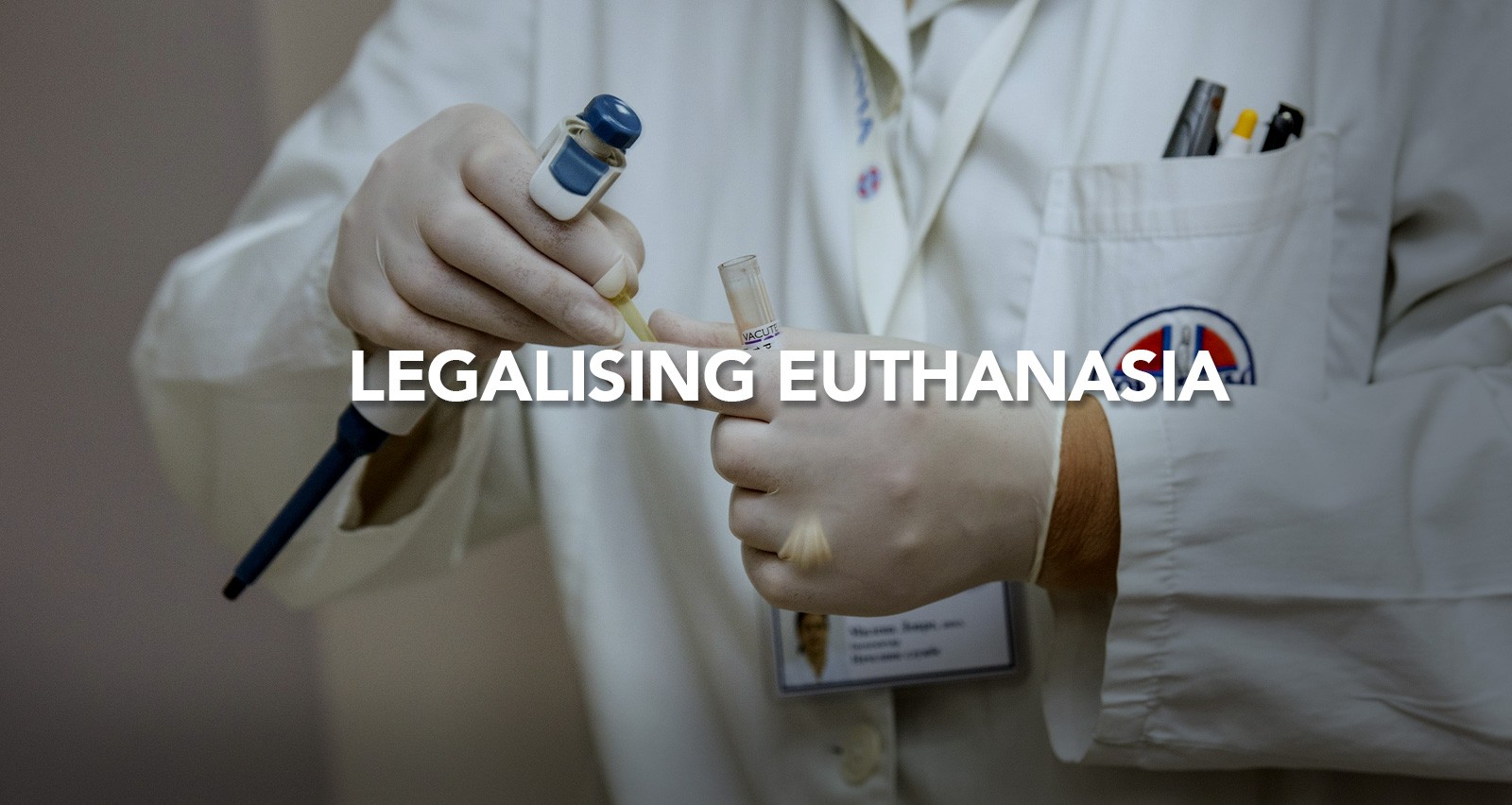
Legalising Euthanasia in Australia
For centuries and across the globe, medical experts, government officials and the fear of God have turned people away from euthanasia, with most believing that taking a person’s life prematurely would send all involved to the fiery pits of hell – to put it lightly. To administer the drugs would be murder and to take those drugs would be suicide; a lose-lose situation for doctors, their patients and the respective states or governments.
So, it’s no small feat for the practice to have been legalised here in the first place, especially considering how many (or few, as the case may be) other countries allow it as well. In fact, other than Australia, only Switzerland, Germany, the Netherlands and a few states in the USA have legalised it.
There are a few things to consider, beyond the morbidity of the subject:
Costs: The relative costs involved in performing euthanasia in comparison to ongoing medical treatment are very, very low. The drugs needed to induce death can run as low as a few hundred dollars, when continued therapies and treatments (depending on the patient) can cost the health service several hundred thousand dollars. Therefore, from a medical and governmental point of view, there is significant financial incentive to euthanize instead of treat.
This raises some tough questions; is your doctor going to recommend euthanasia because it’s an easier and more economic solution than treatment, or do they really have your best intentions at heart?
Reason: In Switzerland, people seeking euthanasia require a great deal of legal, medical and psychological support before being allowed to follow through, sometimes costing in excess of $20,000 to die. A substantial part of that support includes evaluation from leading experts, in place to confirm whether the patient would be better off seeking treatment instead of being put to death. Since Australia’s new euthanasia legislations were passed, we haven’t had any takers, but there are bound to be soon as over 1,200 people are granted euthanasia in Switzerland alone, every year.
It’s imperative then that we, as a state, as a nation, as a people, have effective and easy-to-implement policies that help medical institutions, the government and patients seeking euthanasia, to accurately determine whether that is, in fact, the best solution. There are simply too many grey areas to allow fast and hard rules.
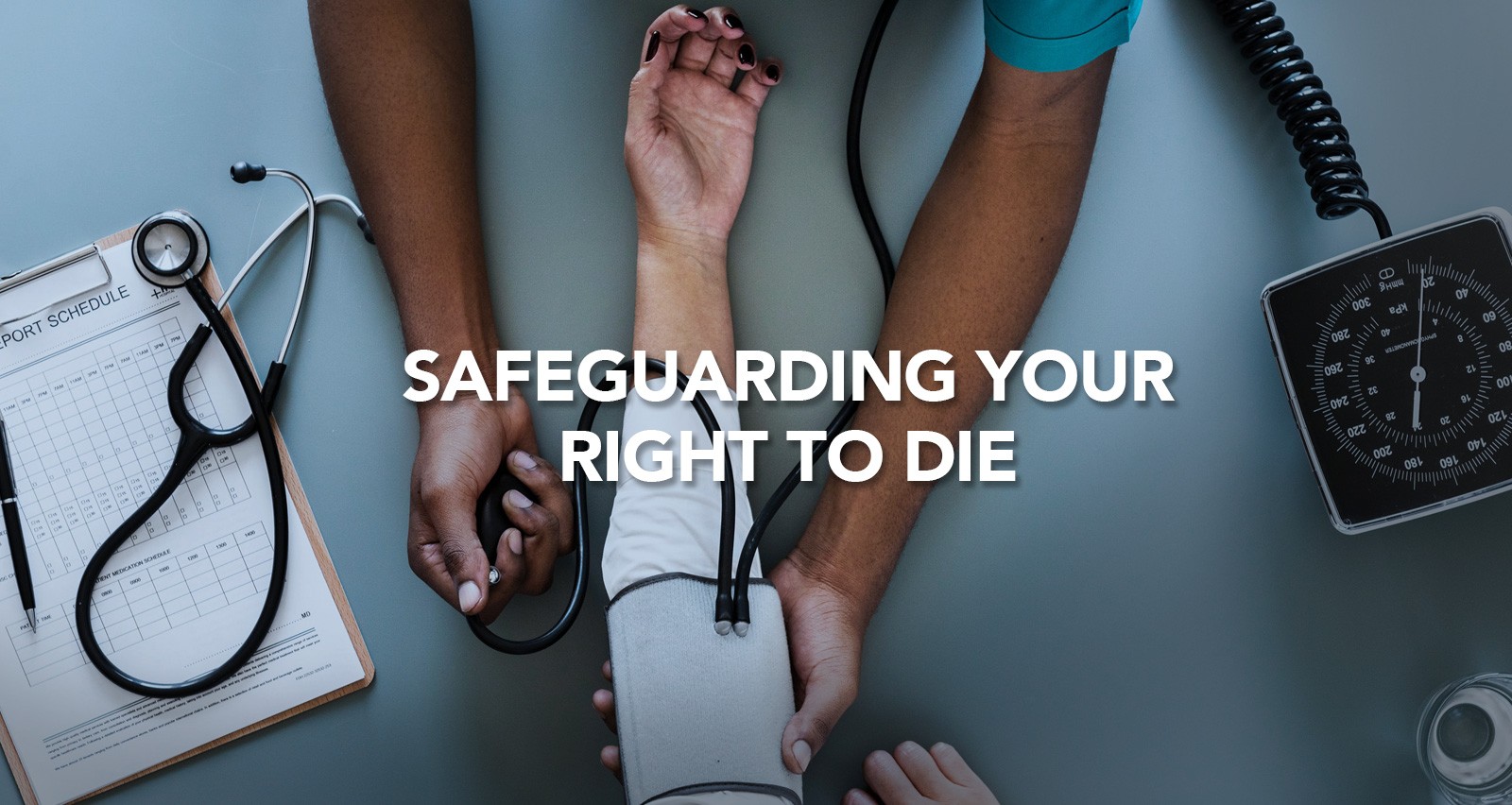
Policies and Preliminary Investigations
As an investigations firm, specialising in insurance and healthcare fraud, we have come across hundreds of cases throughout the years where medical reports and/or the symptoms people claim to be suffering simply don’t marry up. Either patients have over-complicated their symptoms in search of more powerful drugs, time off work or insurance pay outs, or doctors have incorrectly diagnosed patients or been duped into believing a patient’s lies when their sole intention was to benefit from those diagnoses.
It is with that in mind that we put this information forward.
What policies and protocols are in place to ensure that those seeking euthanasia are within their rights to do so? Yes, the entire point of the legislation is to give Australians more freedom in their rights, but there will always be people with ulterior motives – life insurance policies or the threat of bankruptcy or prison are just a few examples of incentives to be euthanized, aside from genuine pain and suffering. The same question stems to the healthcare industry as well – what safeguards are in place to ensure that physicians aren’t prescribing euthanasia for financial gain?
For the time being, the most suitable option for all involved is to secure the help of a professional investigations agency. From a medical standpoint, investigators can assist doctors in determining the eligibility of euthanasia candidates through thorough due diligence, fact-checking and even surveillance. For the State, and its people, investigators can help to accurately assess medical institutions and provide reports on the frequency of euthanasia prescriptions and the reasons behind them, correlating that information to determine any potential abuse of power, which is a significant concern. After all, as sinister and far-fetched as it may seem, euthanasia is an almost perfect cover for murder.
The Way Forward
Precise Investigation invites local government and state representatives to initiate policy creation, with the agency providing insight into the development and implementation of those policies.
To the public, we recommend that you always perform in-depth investigations into any major diagnosis, especially where those diagnoses suggest euthanasia to be the best solution.
To Melbourne’s leading healthcare providers, we highly recommend preliminary investigations be carried out prior to prescribing or otherwise condoning euthanasia, especially considering that Australia is still one of the world’s most fraud-afflicted countries.
Get in touch with us today to discuss what can be done to make your life, your hospital and our State safer and more productive.
Thank you for reading.
Precise Investigation

